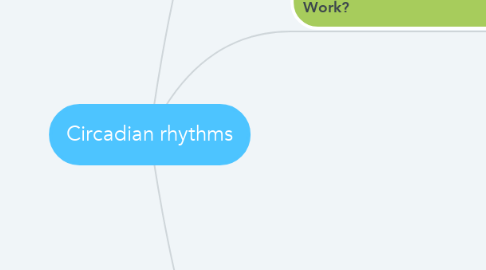Circadian rhythms
by Əсем Айдар

1. Circadian rhythms are 24-hour cycles that are part of the body’s internal clock, running in the background to carry out essential functions and processes. One of the most important and well-known circadian rhythms is the sleep-wake cycle.
2. How Does Circadian Rhythm Work?
2.1. Circadian rhythms work by helping to make sure that the body’s processes are optimized at various points during a 24-hour period. The term circadian comes from the Latin phrase “circa diem,” which means “around a day.” Circadian rhythms exist in all types of organisms.
2.1.1. The SCN is highly sensitive to light, which serves as an critical external cue that influences the signals sent by the SCN to coordinate internal clocks in the body. For this reason, circadian rhythms are closely connected to day and night. While other cues, like exercise, social activity, and temperature, can affect the master clock, light is the most powerful influence on circadian rhythms
2.2. In people, circadian rhythms coordinate mental and physical systems throughout the body. The digestive system produces proteins to match the typical timing of meals, and the endocrine system regulates hormones to suit normal energy expenditure.
2.3. The circadian rhythms throughout the body are connected to a master clock,sometimes referred to as the circadian pacemaker, located in the brain. Specifically, it is found in the suprachiasmatic nucleus (SCN), which is in a part of the brain called the hypothalamus. At different times of the day, clock genes in the SCN send signals to regulate activity throughout the body.
3. How To Maintain a Healthy Circadian Rhythm
3.1. Seek out sun: Exposure to natural light, especially early in the day, helps reinforce the strongest circadian cue.
3.2. Follow a consistent sleep schedule: Varying your bedtime or morning wake-up time can hinder your body’s ability to adjust to a stable circadian rhythm.
3.3. Get daily exercise: Activity during the day can support your internal clock and help make it easier to fall asleep at night.
3.4. Avoid caffeine: Stimulants like caffeine can keep you awake and throw off the natural balance between sleep and wakefulness. Everyone is different, but if you’re having trouble sleeping, you should avoid caffeine after noon.
3.5. Avoid caffeine: Stimulants like caffeine can keep you awake and throw off the natural balance between sleep and wakefulness. Everyone is different, but if you’re having trouble sleeping, you should avoid caffeine after noon.
3.6. Keep naps short and early in the afternoon: Late and long naps can push back your bedtime and throw your sleep schedule off-kilter.



